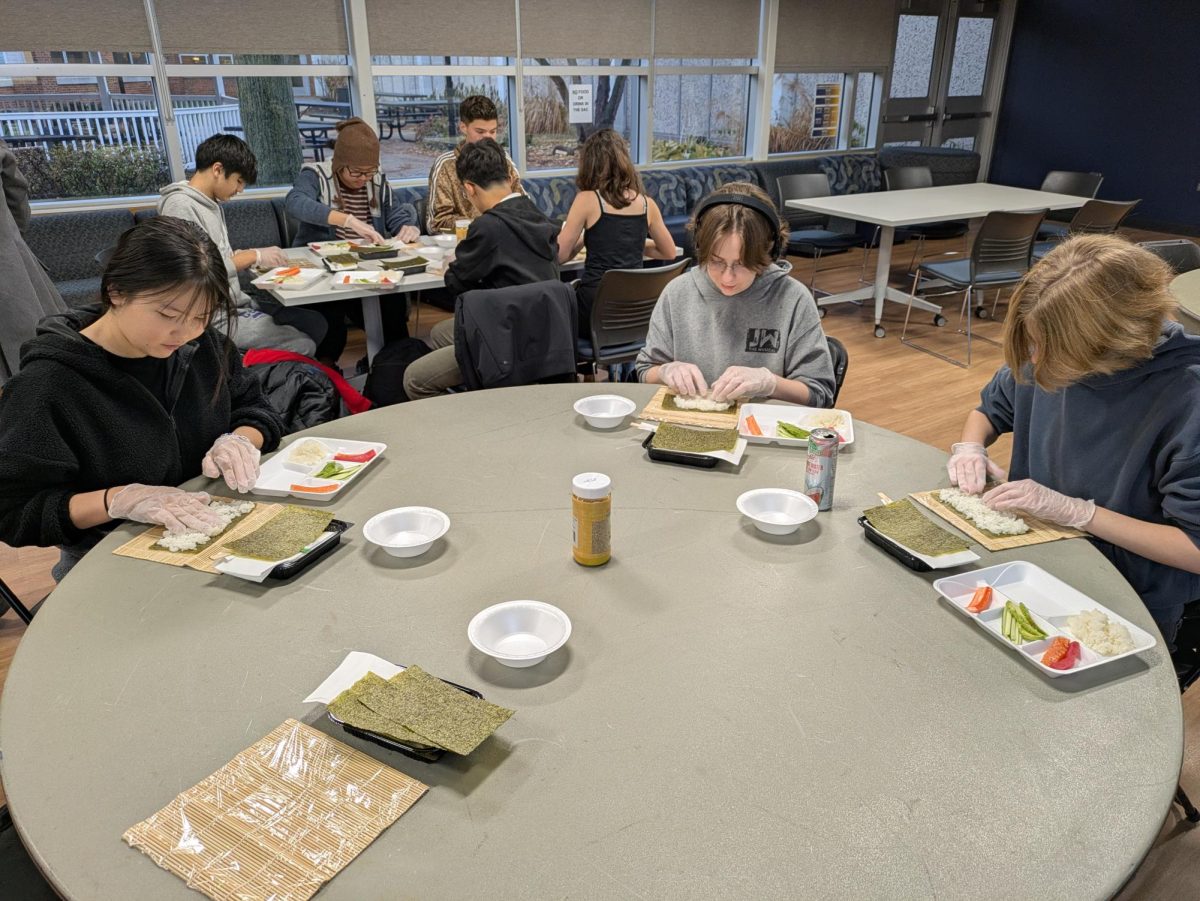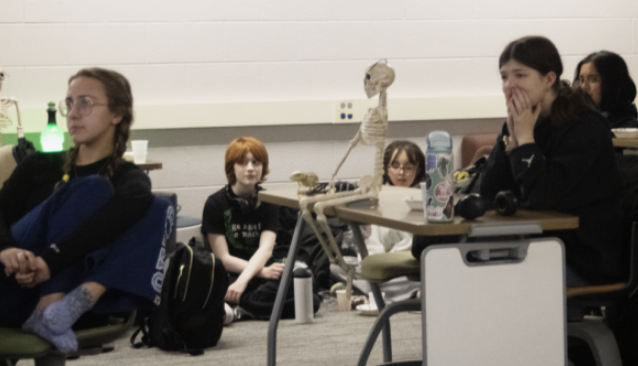For most South students, walking is an everyday task often taken for granted. For junior Anda Matei, it’s an ability she is grateful to have since she was diagnosed with muscular dystrophy, (MD), a genetic condition that slowly weakens and deteriorates muscle tissue.
According to Matei, she had no idea about her MD until she was 8 years old. She said that a loss in her ability to run, increased tiredness and stomach pains were all signs of the disorder, but the actual diagnosis occurred after an unrelated hospital trip.
“I had a […] fever, and my mom had to bring me to the emergency room, and that’s where they ran a bunch of tests to see what was wrong with me, but the fever had nothing to do with it. When they were running all these tests, they saw I had MD,” Matei said.
Despite the diagnosis, Matei remains grateful to have a form of MD which affects only her arms and legs.
“I have limb-girdle [MD] which is the mildest case. There are some that are much worse, kids who die by the age of 25 because their heart fails,”Matei said.
Yet Matei said that the disorder still affects her physical abilities and makes her dependent on others.
“It’s hard for me to move on my own,” Matei said. “I do need help putting on my shoes, for example, or someone cooking for me, or driving is another thing. I don’t think I’m capable of living on my own yet.”
According to Kara Bolf, special education teacher and Matei’s case worker, Matei combats her physical weaknesses with mental stamina.
“She knows herself very well,” Bolf said. “She knows her limitations, and she knows what she’s able to do, and as long as she’s able to do something she works hard to do it.”
Despite her physical setbacks, Bolf claims Matei is treated no differently by the school and works hard to complete all physical activities.
“She doesn’t take a regular PE class but she gets her exercises in and she’s not exempt from doing things,” Bolf said.
Another aspect of Matei’s life that requires mental stamina is explaining her disorder to fellow students.
According to Matei, in sixth grade she faced a particularly difficult situation with a fellow student who mocked her disorder.
“When I was in sixth grade, this one kid would imitate the way I walked as a joke because he didn’t understand,” Matei said. “One of the teachers saw him and […] asked me, ‘Do you want me to tell him what you have?’ and I was like ‘Yeah sure, you can tell him’ and then he kind of understood, like he thought I was just walking like this because I felt like it.”
Despite this instance, Matei considers most students’ reactions to her disorder as positive.
“I’ve been asked a lot of questions like, ‘Oh did you hurt your back, did you hurt your legs?’ I think [people] just don’t understand,” Matei said. “If I wasn’t like this and someone else had it I’d probably ask the same questions because I wouldn’t know.”
One thing Matei wants people to know is that even though she has some physical limitations, they do not affect her mentally in any way.
“Mentally I’m there, I’m at the same level as [everyone else],” Matei said.
Bolf agrees that Matei’s mental abilities are not an issue and believes Matei takes great pride in her school work.
“She’s in classes that she would be in whether she had a disability or not,” Bolf said.
According to Bolf, the Matei’s schedule for these classes is strategically planned by location.
“We try to schedule some classes a little bit closer together for her so she might not have to walk as far,” Bolf said.
Walking distances may soon not be an issue for Matei if her plans for treatment work out. Matei said scientists have found a possible cure for her disorder.
“They’re working on this thing called Exon Skipping which is a treatment,” Matei said. “It skips all the genetic errors caused by muscular dystrophy and it tries to match it with a different code in the DNA.”
Matei said that she has already begun the process and may be receiving a full treatment soon.
“[The doctors] already found something, and they injected it into my little sample [of skin] that they took, and they saw one injection that was working very well. They have injected it into other kids, but it’s not yet approved by the FDA so my mom wants to wait until it’s approved, and then I’ll get it done,” Matei said.
With a treatment in the works, Matei is thinking towards her future and is getting excited for college.
“I was maybe thinking about [majoring in] psychology or going into real estate because my mom has her own company, maybe I could take that over,” Matei said.
Bolf believes that Matei’s confidence will provide her with the ability to succeed in any future plans.
“She’s very strong and stands up for herself and let’s people know what she needs and when, so if there was ever a time when she didn’t have what she needed she would just let [someone] know,” Bolf said.
Matei plans to use this attitude to carry out her future goals for a life without MD.
“I always wanted to live in Florida or Miami, that’s my dream,” Matei said.








